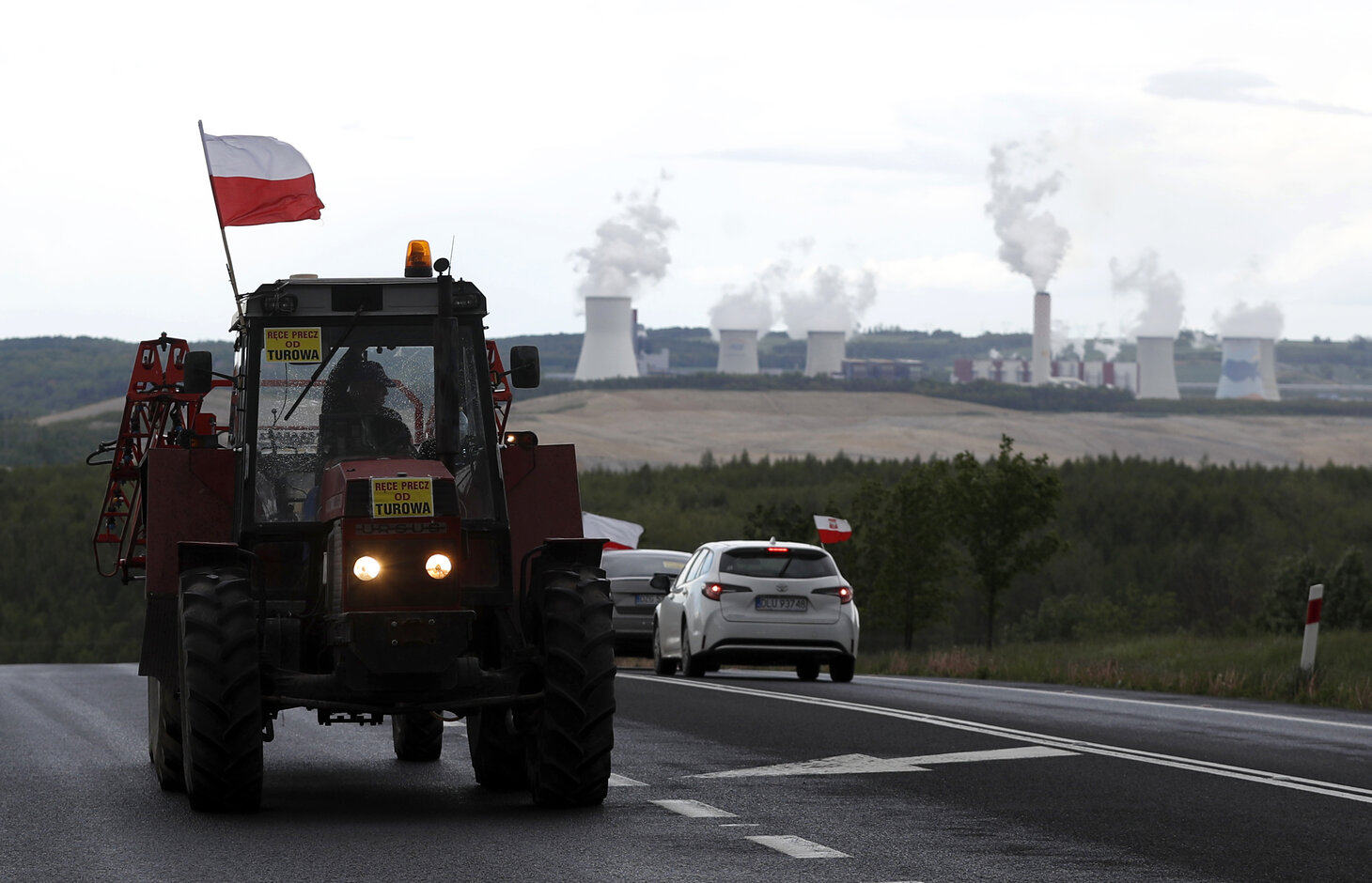The situation between Poland and the Czech Republic over the Polish lignite coal mine in Turów remains tense, with Czech and Polish representatives disucssing the matter again on Friday.
Czech Minister for the Environment Richard Brabec noted a shift in some points of contention. According to the Polish side, the dispute should be resolved in bilateral negotiations, not cast off to the bureaucratic level of the European Union.
After Friday’s meeting of expert teams in Prague at the Ministry of the Environment, Brabec said that he sees a significant shift in some points regarding the Polish brown coal mine Turów. Next week, he will meet with his Polish counterpart Michal Kurtyka, and professional teams will meet again as well.
Brabec did not want to be specific about a possible agreement.
“Unless everything is agreed, nothing is agreed. However, several points were significantly controversial throughout. Today, after the negotiations, I perceive a shift in some, and we will see,“ he said.
“I am glad that after today’s meeting, we are closer to a compromise that will hopefully be acceptable to both parties,” added Liberec Governor Martin Půta.
Long-term solution needed
According to Půta, it is necessary to find a mechanism for a long-term solution to the problem, so that countries do not have to go to the European Court of Justice for every detail.
“We are talking about the future of mining for some time and about the circumstances in which we, as the Czech party, would be willing to end the litigation, or get the agreement in this form so that it is acceptable to both parties,” Brabec added.
Today, the Czech side was represented by Martin Smolek, deputy minister of foreign affairs for the legal and consular section, and Půta. Poland was represented by Deputy Foreign Minister Pawel Jabloński and Cezary Przybylski, Marshal of the Lower Silesian Voivodeship. Brabec did not attend the meeting.
“We believe that the problem needs to be resolved in bilateral negotiations, not escalated at European Union level. A provisional agreement was concluded in May this year, which, in our opinion, should be the basis for further negotiations,“ Jabloński told reporters. The matter must end quickly, he added.
According to him, it depends on the Czech side whether the money intended to finance various projects will be sent directly to the Czech Republic, the Liberec Region, or to the EU budget in the event of a continuation of the dispute at the EU level.
Marshal of the Lower Silesian Voivodeship Cezary Przybylski warned that unless the states find an agreement, Poland will not give money for joint projects of local governments of both countries. Poland refuses to pay fines while financing projects.
Jabloński believes that the long negotiations were due to political reasons. According to him, it is necessary to find a satisfactory solution for the inhabitants of the Liberec region and Poland. He mentioned that unacceptable demands had been made by some people during the negotiations.
He went on to say that in the last four months, Poland has had good reason to end or suspend negotiation.
“But we did not do it because we believe that such things need to be addressed through dialogue,” the deputy added.
Babiš holds his fire
According to Czech Prime Minister Andrej Babiš, this is not a political issue, but a professional one, which he repeated on Friday.
“In Poland, this seems to have become a political issue. It simply came to our notice then. I do not want to believe that Mr. Morawiecki would do the things that the media report,“ he said.
As the prime minister, he has never discussed the matter, leaving it up to the experts, he said. The Czech Republic turned to Poland several years ago, but there was no response, Babiš said.
“The Polish side had enough time to solve this problem, but unfortunately it did not want to solve it,” he noted. It was, therefore, necessary to resolve the matter through the European Commission.
According to Babiš, however, the current dispute cannot disrupt mutual relations within the Visegrad Group (V4), which, in addition to Poland and the Czech Republic, also includes Slovakia and Hungary.
“Certainly not on our part,” he assured.
The mine threatens drinking water supplies in Czech towns
According to the Czech Republic, the mine threatens, among other things, drinking water supplies in Czech municipalities. On Monday, the Court of Justice of the European Union fined Poland €500,000 a day (about 12.7 million CZK) for disobeying a previous court order to suspend mining in the Turów mine.
In May, the EU court issued a preliminary decision based on a Czech lawsuit to force the mine to close operations. The Polish government responded by announcing that it did not intend to close the mine, and the same position was taken by the CEO of PGE, the owner of the mine. According to Poland, a sudden cessation of mining would endanger the country’s energy security and thousands of jobs. The court subsequently imposed the fine on Poland.
The Polish prime minister, Mateusz Morawiecki, then accused Czechia of acting “absolutely without goodwill” in resolving the dispute. Due to this, the prime minister canceled the planned Thursday trip to the Demographic Summit in Budapest, which Babiš also attended on Thursday.
Babiš told reporters that he was hesitant to believe that Morawiecki would not arrive because of Turów.






